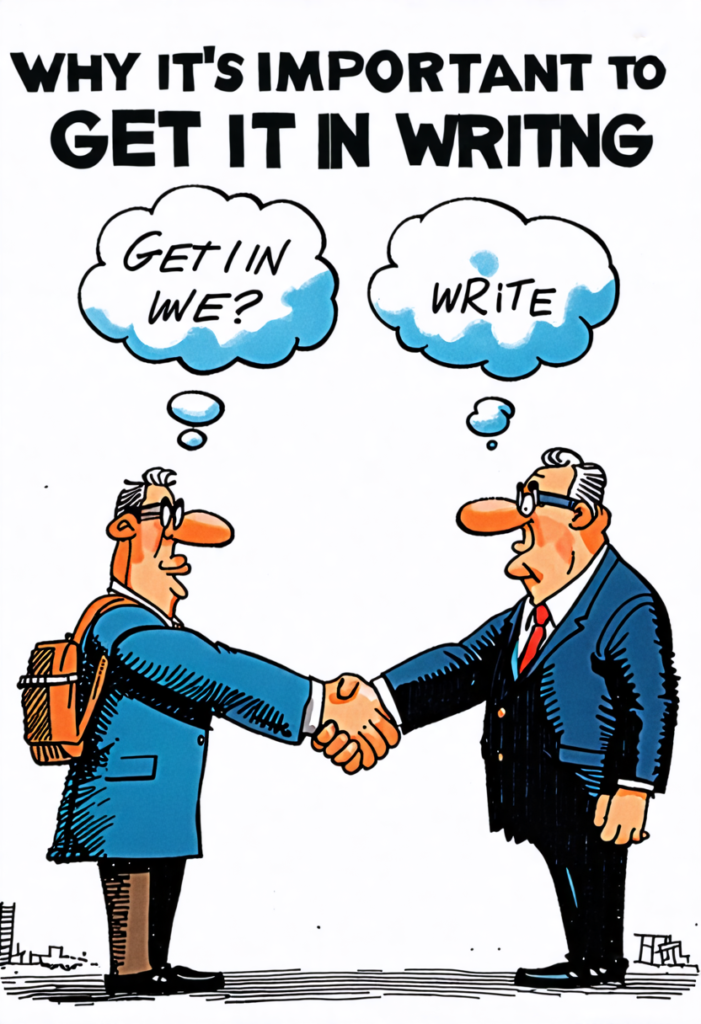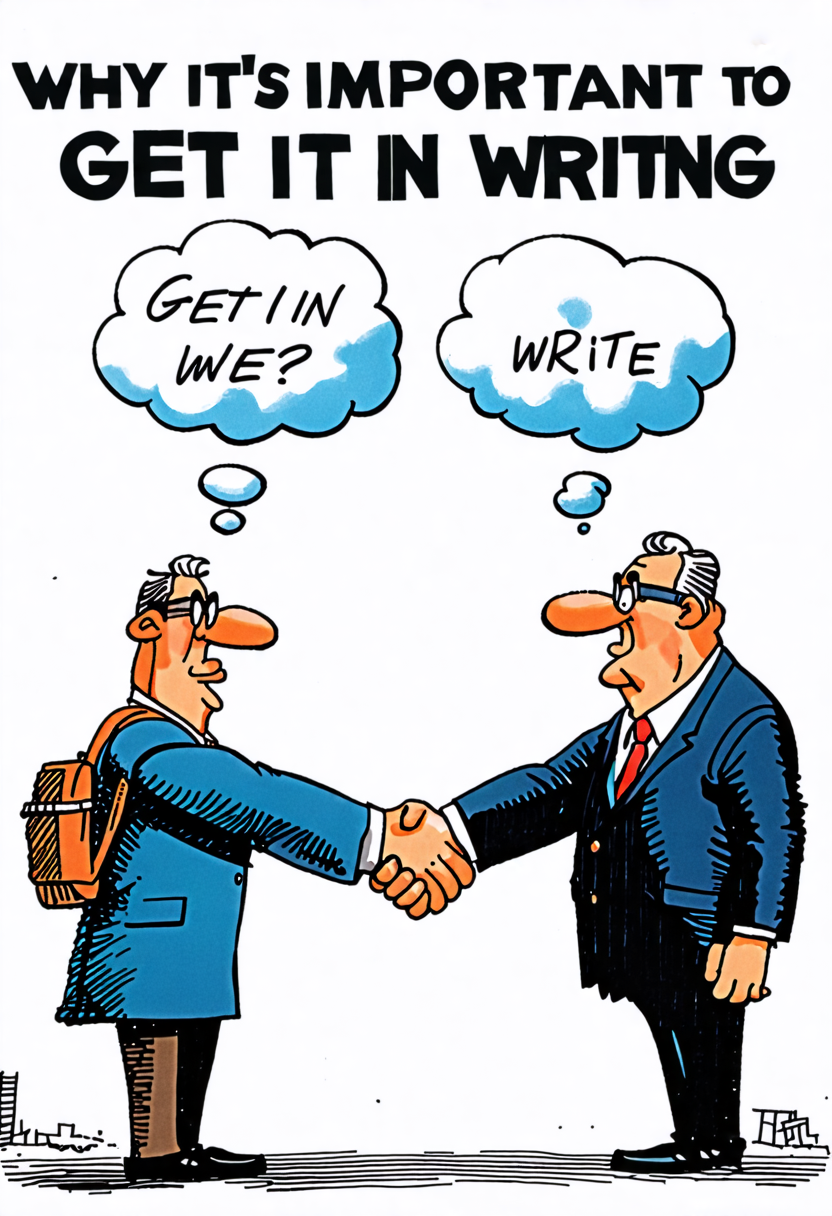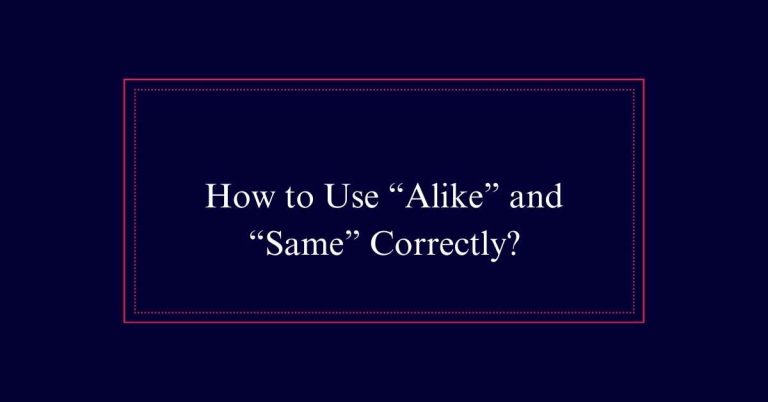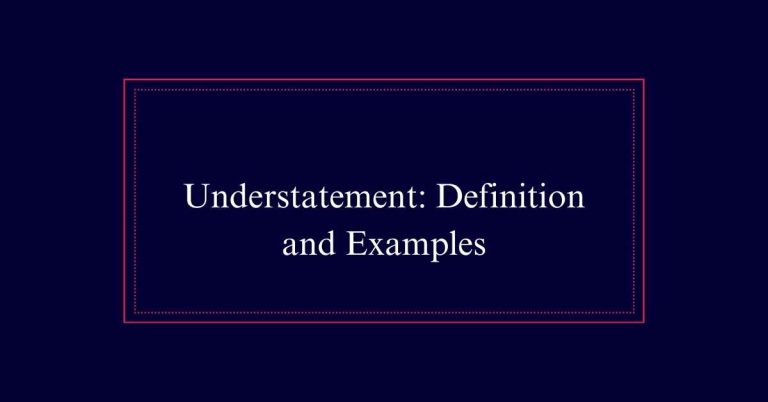Why It’s Important to ‘Get It in Writing’?
Getting agreements in writing is vital for preventing misunderstandings and protecting legal rights. Written documents provide clear reference points that help clarify expectations and guarantee all parties are on the same page.
They serve as concrete evidence in case of disputes and uphold the integrity of agreements, especially in transactions involving significant amounts of money. Additionally, written contracts offer legal enforceability, minimize conflicts, and provide security and accountability.
A well-drafted written agreement can prevent hurt feelings and avoid claims of ignorance.
Understanding ‘Get It in Writing’
In professional and personal interactions, ‘getting it in writing’ is essential to avoid misunderstandings and disputes. For example, volunteering on nonprofit boards often leads to miscommunications. By documenting conversations, participants can prevent misinterpretations and guarantee clarity.
Written records help avoid hurt feelings and confusion by providing a clear reference. When verbal agreements are reiterated in writing, expectations are clarified, making sure everyone is on the same page. Additionally, having a written record protects against claims of ignorance, allowing parties to refer back to agreed-upon terms.
Avoiding Misunderstandings
Preventing misunderstandings is vital for maintaining effective communication and trust. Verbal agreements can often lead to misinterpretations, leaving parties confused or disappointed.
Putting agreements in writing clarifies expectations and guarantees all parties are on the same page. Written records provide a clear reference, reducing the risk of conflicting memories about what was agreed upon. This is particularly important in volunteer settings, where misunderstandings can easily arise.
Documenting conversations and agreements helps avoid hurt feelings and potential disputes. By capturing the details in writing, everyone involved has a reliable source to refer to, safeguarding against claims of ignorance or forgetfulness.
Essentially, written agreements foster transparency and accountability, essential for successful collaborations.
Legal Contracts Essentials
While written agreements help prevent misunderstandings, certain situations require formal legal contracts to guarantee that all parties are legally protected. Real estate transactions, for example, should always be documented through legal contracts.
Agreements to pay another person’s debt also need formal legal documentation. Contracts that will last over a year, such as long-term leases, must be legally binding to ensure complAdditionally, a legal contract should support any agreement involving sizable sums of money to prevent disputes.sputes.

Written Agreements Benefits
Written agreements provide concrete evidence of the terms discussed and agreed upon. They serve as proof, preventing parties from denying their commitments or altering their stories. By having everything in writing, misunderstandings are minimized, and expectations are clearly laid out. This clarity can prevent conflicts and guarantee that all parties are on the same page.
Additionally, written agreements can be used as legal evidence if disputes arise. Samuel Goldwyn famously said, ‘A verbal contract isn’t worth the paper it’s written on,’ emphasizing the importance of documentation. Essentially, getting agreements in writing provides security and clarity, making sure that everyone knows their responsibilities and obligations. This practice protects all involved and fosters trust.
Role of Legal Counsel
Engaging legal counsel is essential for successfully managing high-stakes agreements and ensuring the robustness of contracts. Lawyers have the expertise to draft precise and enforceable agreements. They can identify potential pitfalls and address them proactively.
For complex transactions, lawyer-drafted contracts are advisable to avoid ambiguities. Legal counsel can also offer tailored advice specific to your situation, ensuring all legal requirements are met.
Using legal templates can be helpful for standard agreements, but they should be reviewed by a lawyer. When in doubt, involving legal counsel is recommended to safeguard your interests.
Researching reputable sources for contract templates is also important to avoid future complications. Legal counsel provides peace of mind and adds a layer of protection.
Protecting Verbal Agreements
Verbal agreements can often lead to misunderstandings if not properly documented. To protect against such issues, it is important to get verbal agreements in writing. This practice guarantees clarity and accountability.
Here are four key reasons why documenting verbal agreements is essential:
- Avoid Misinterpretations: Written records clarify the exact terms discussed.
- Prevent Disputes: Written agreements reduce the chances of disagreements later.
- Protect Interests: A documented agreement safeguards all parties involved.
- Legal Proof: Written agreements can serve as legal evidence if disputes arise.
Finding Contract Templates
Finding trustworthy contract templates is an essential step in ensuring that your agreements are legally sound and well-documented.
Start by searching for specific contract types along with your state’s name. This can often lead you to official templates provided by state government websites. These sites frequently offer free, downloadable contracts that are tailored to local laws.
Be cautious of sites that require payment for creating contracts, as they may not always be reliable. Look for templates on websites with .gov domains, as these are typically more thorough.
Utilizing these resources can help you form agreements that are both detailed and legally compliant, thereby protecting all parties involved.
Using Legal Documentation
Legal documentation serves as a critical tool for formalizing agreements and ensuring all parties understand their obligations. It provides a clear, legally binding record that can prevent disputes and misunderstandings.
Using legal documentation is essential for several reasons:
- Clarity and Precision: Legal documents outline specific terms and conditions, leaving no room for ambiguity.
- Protection: They safeguard all parties by clearly stating rights and responsibilities.
- Enforceability: Legal documents can be enforced in a court of law, ensuring compliance.
- Record Keeping: They serve as an official record that can be referenced in future dealings.








